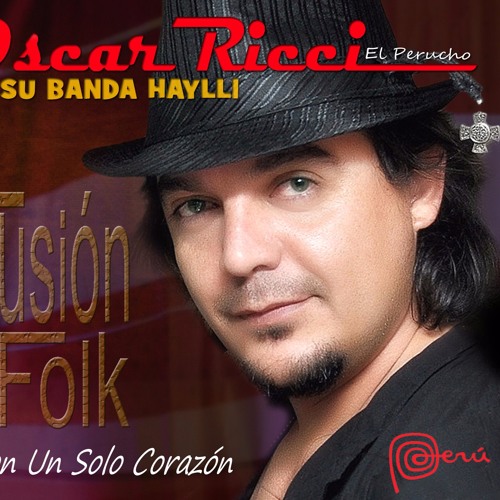Insights & Analysis: Exploring Diverse Topics And Figures
Is the Censis 2021 questionnaire a true reflection of contemporary Italian society, or does it merely scratch the surface? The debates surrounding the outcomes of the 2021 questionnaire reveal a complex tapestry of societal anxieties, political maneuvering, and the evolving nature of public discourse in Italy.
The analysis of the Censis 2021 questionnaire's outcomes provides a crucial window into the Italian societal landscape. The questionnaire, a significant tool for gauging public sentiment, is inevitably subject to scrutiny, interpretation, and, at times, intense controversy. The resulting debates highlight the multifaceted nature of the Italian socio-political environment. These conversations, often fueled by diverse viewpoints, offer insight into various aspects of Italian life, from economic concerns and cultural values to political affiliations and attitudes towards the future. The complexity is amplified by the varying methodologies used to collect and interpret the data, and the political implications attached to the conclusions. The influence of media, political strategists, and various social groups also play a significant role in shaping the public discourse surrounding these questionnaires.
The very nature of a survey like the Censis questionnaire implies a degree of simplification. The questionnaire, by its inherent structure, seeks to distill complex realities into quantifiable data. This process, however, invariably generates questions of representativeness, methodology, and interpretation. The survey's findings, however meticulously gathered, are always subject to interpretation, and that interpretation often differs drastically among different parties. The outcomes of the Censis 2021 survey sparked vigorous debate, the analysis of which sheds light not only on the survey's results but also on the dynamics of contemporary Italian society. The debates often center on which groups are over- or underrepresented, how much weight should be given to certain responses, and what the overall implications of the findings might be for the future of the country.
Beyond the specifics of the 2021 questionnaire, the debates surrounding it reflect a broader struggle over the narrative of Italy's identity. The questionnaire itself, and its subsequent analysis, become tools in a larger battle to shape public opinion, influence policy decisions, and define the values that will guide the nation's trajectory. The way that these surveys are interpreted often mirrors, or even amplifies, existing political and ideological divisions. One of the central challenges is to ensure that the analysis is comprehensive and impartial. The questionnaire's conclusions can be used to support a variety of agendas, thereby creating the risk of selective data use or even outright manipulation. The need for transparency in data collection, analysis, and dissemination is paramount.
The influence of media and social media also contributes significantly to the ongoing discussion. The way in which the outcomes of the 2021 questionnaire are reported, discussed, and disseminated can profoundly shape the public's understanding of the data. The media, both traditional and new, plays a critical role in framing the debate, setting the agenda, and amplifying certain voices over others. This dynamic often results in the creation of echo chambers, where different segments of the population are exposed to radically different interpretations of the same information. The rise of social media has accelerated this trend. Platforms such as Facebook, Twitter (now X), and other channels provide opportunities for both information sharing and disinformation, adding layers of complexity to the analysis.
Conspiracy theories, as explored in "Navarini (a cura di), conspiracy theories in contemporary Italy cultural production and political uses (pp.)", can also find fertile ground within the context of surveys like the Censis questionnaire. When trust in institutions is low, and when different segments of society are deeply divided, alternative explanations for events, even if based on limited or incorrect information, can gain traction. The spread of conspiracy theories often coincides with a lack of transparency, making it difficult for the public to assess the credibility of information. This vulnerability has significant consequences for a healthy public discourse. An environment that is filled with distrust makes reasoned debate difficult, and makes it hard for citizens to make informed decisions based on objective evidence.
The very definition of "Italian identity" is subject to contention. In the wake of events such as the 2021 questionnaire, this question gains added urgency. The resulting debate becomes part of a larger conversation about the country's past, its present, and its future. These discussions include the role of immigration, the importance of tradition, the impact of globalization, and the changing relationship between citizens and the state. The outcomes of the 2021 survey, interpreted within this broader context, have the potential to ignite passionate disagreements, and to shape the course of national policy.
Moving beyond the theoretical and analytical, we find that several individuals mentioned in the provided text have, through their professions and interests, contributed to the contemporary cultural and professional environment. One such individual is Oscar Ricci, whose activities span diverse fields, as detailed below.
| Attribute | Details |
|---|---|
| Full Name | Oscar Ricci |
| Profession/Affiliations |
|
| Known Activities |
|
| Links |
|
| Notes |
|
Beyond the corporate and professional spheres, the provided text also references individuals involved in media, entertainment, and artistic endeavors. One prominent example is a person, mentioned as "Born february 12, 1980) is an american actress known for playing unusual characters with a dark edge." This actress has garnered critical acclaim, as evidenced by multiple award nominations. This recognition highlights the impact of individuals who take creative risks in their chosen field. The actress's willingness to portray complex characters has helped to push the boundaries of cinematic storytelling, and has resonated with audiences worldwide. Her contributions to the entertainment industry demonstrate the power of individuals to leave a lasting cultural impact.
Another individual, Oscar Ricci Marco Crepaldi, presents another area of focus. This individual is a social psychologist who has carved out a niche in online spaces, specifically on YouTube and Twitch. His channels focus on issues relevant to men, covering topics such as body shaming, violence against men, and social isolation. His efforts highlight the emergence of digital platforms as spaces for discussion and community-building around specific social topics. This represents a shift in the way that conversations about social issues are being handled, from traditional academic spaces to more accessible platforms like YouTube and Twitch. The focus on male issues underscores a growing interest in addressing previously underexplored areas of social concern.
The provided text also mentions a vibrant community on Facebook. As indicated, "Join facebook to connect with oscar ricci and others you may know. Facebook gives people the power to share and makes the world more open and connected." This underscores the ongoing role of social media in shaping community and facilitating connections. The platform continues to serve as a crucial place for people to share information, build relationships, and participate in public discourse. The impact of Facebook extends beyond mere social interaction, influencing everything from political activism to the dissemination of news and opinions.
The influence of technology, as alluded to in "La rappresentazione della tecnologia nei magazines di divulgazione scientifica (2008) e celebrit 2.0.", is evident in the way we consume information. The interplay between technology, celebrity, and the media is a topic of study in itself. The evolution of technology and its integration into modern life is transforming how information is being disseminated. The very nature of celebrity is evolving as well, with individuals leveraging digital platforms to create a brand and influence. The evolution continues, with new technologies and formats constantly reshaping the media landscape.
Several individuals have established themselves as key players in the Italian media landscape, particularly within the context of tourism studies and media studies. The presence of scholars and researchers associated with the Universit degli Studi di Milano highlights the important role of Italian academia in contributing to the study of media and tourism. These scholars contribute to a better understanding of how media affects the tourism industry, and how tourism is shaped by broader cultural trends. The academic work in these fields offers critical insights into the role of these sectors in shaping Italian society and culture.
The entrepreneurial side is represented by individuals involved in business ventures, such as Oscar Ricci, identified as the executive president of Netuno. The expansion and activities of the cable TV company, Netuno, which has a presence across several cities, demonstrate business developments and technological advancement within the country. Their focus on fiber optic deployment, as mentioned by Oscar Ricci, underlines the important role of technology and infrastructural advancements in driving economic development.
Moreover, the text provides insight into the evolution of cultural expression and community. The information from various sources show different aspects of life. The support received by individuals and their families highlights the importance of heritage and the transmission of values.
In summary, the provided information offers glimpses into a multifaceted landscape. The analysis of the Censis 2021 questionnaire brings into sharp relief a nation grappling with its identity, whilst the roles of individuals, whether in academia, entertainment, or business, help to shape the fabric of society.


